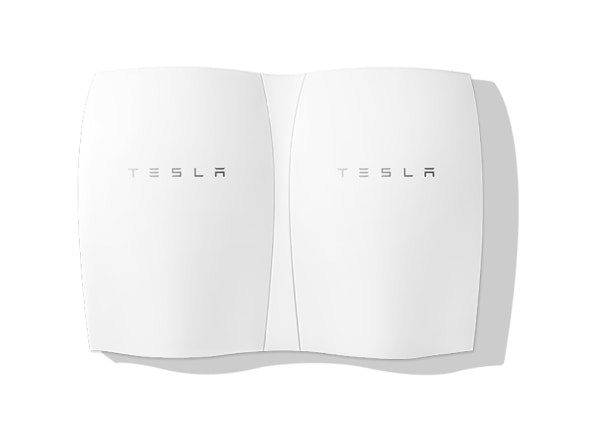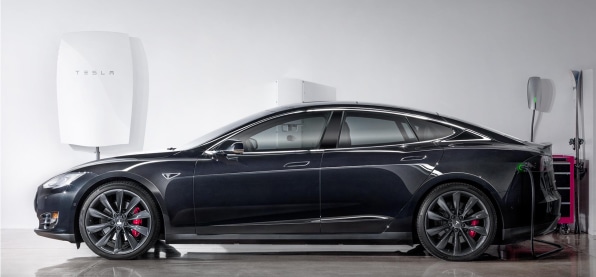How Long Do Tesla Model 3 Batteries Last
Ten days after launching its new Powerwall and Powerpack batteries, Tesla announced that it was sold out through 2016. At the same time, the criticism started: Were the batteries just a "toy for rich green people" that "didn't work that well with solar"?
So does it make sense to buy this battery? The answer depends on who you are and where you live. For companies that pay steep demand charges (when electricity costs more at times of high demand) and have access to lucrative incentives, such as the Self-Generation Incentive Program in California, the batteries are like "free money," says Garrett Fitzgerald, an analyst from the Rocky Mountain Institute. Demand charges can make up half of a typical commercial electric bill. By storing power generated when electricity is cheap, businesses can reduce them.

For homeowners with solar power, the calculation is slightly more complicated. "Tesla sees enormous potential for the Powerwall in markets like Hawaii, Germany, and Australia, where the price of electricity is significantly more expensive than the price a utility will pay a homeowner for excess solar production," says Alexis Georgeson from Tesla. "In these markets today, the Powerwall can provide compelling economics."
Other places currently use a system called net metering–when customers generate solar power and it flows to the grid, utilities pay the same price as they charge for energy flowing out. That means having a battery wouldn't save a household any money.
"In markets like California, where net metering provides a pricing parity between retail electricity and power sold back to the utility, the Powerwall's primary value to the customer is in providing backup and enabling a consumer's solar panels to continue operating when the grid goes down," says Georgeson.

For some people, that might be worth paying a little extra. "It depends on how much you value your ability to use your solar power system during an outage," says Fitzgerald. "During Hurricane Sandy, none of these systems were able to disconnect from the grid, so their solar was essentially useless during the three weeks when the grid was down."
As the price of solar keeps plummeting, the additional cost of a battery for backup might seem fairly small. "If I could pay an extra 20%-25% and we can guarantee that the lights never go off–and I've got little kids at home, I've got milk in the fridge–that actually already sounds pretty attractive to me," says Jamie Mandel, principal in RMI's electricity practice. "Solar's already 20% cheaper than it was a year and a half ago. I can go back to the price of a year or two ago [with the added cost of the battery], but now I've got this extra benefit of resiliency."
Contrary to some reports, the projects supporter's say the batteries could easily supply basic power needs for a house if the grid went down. "The 10 kWh Powerwall provides sufficient power to continue operating the most commonly needed circuits selected by the customer, including the refrigerator, lighting, computer, alarm system and electrical outlets, and two Powerwalls installed together could support the majority of household loads, including heating and cooling," says Jonathan Bass, a spokesman for SolarCity, which offers Tesla's batteries in its leases. "When the battery is depleted, it can be recharged by solar power even if the outage continues for multiple days."
Companies, too, could use the commercial-size batteries to prevent outages. "If your lights go out as a business, I think the backup power is much easier to monetize," says Mandel.
For others who aren't as worried about backup power, a battery-plus-solar system could become as cheap as paying a typical electric bill within a few years. In a report in April, Rocky Mountain Institute found that a solar and battery system would be cheaper than the grid in some places–like Westchester County in New York, and Los Angeles–in about a decade. With Tesla's new battery, they say that could happen even faster.
The battery-and-solar system could also quickly become cheaper than the grid if utilities start to pay customers for the services the batteries could provide–like sending power back into the grid when traditional power plants are overwhelmed during a heat wave, or helping utilities avoid investing in expensive new central infrastructure. Right now, the U.S. is projected to spend $1 to $2 trillion over the next 15 years on new power infrastructure, but energy storage in homes could help offset a large chunk of that bill.
"These batteries are absolutely cheap enough today to provide a whole suite of grid values," says Mandel. "The problem is there's a lack of markets, or tools, or programs so that they can participate."
That will likely change soon, though utilities and regulators will have to figure out how the redesign of the grid will work. "There's a whole set of problems batteries can solve, and then there are a lot of open questions around which business model is the most efficient," Mandel says. "Our personal view is that putting batteries at the customer site is going to be best both for customers and the grid."
How Long Do Tesla Model 3 Batteries Last
Source: https://www.fastcompany.com/3046223/should-you-buy-a-tesla-battery








Tidak ada komentar:
Posting Komentar